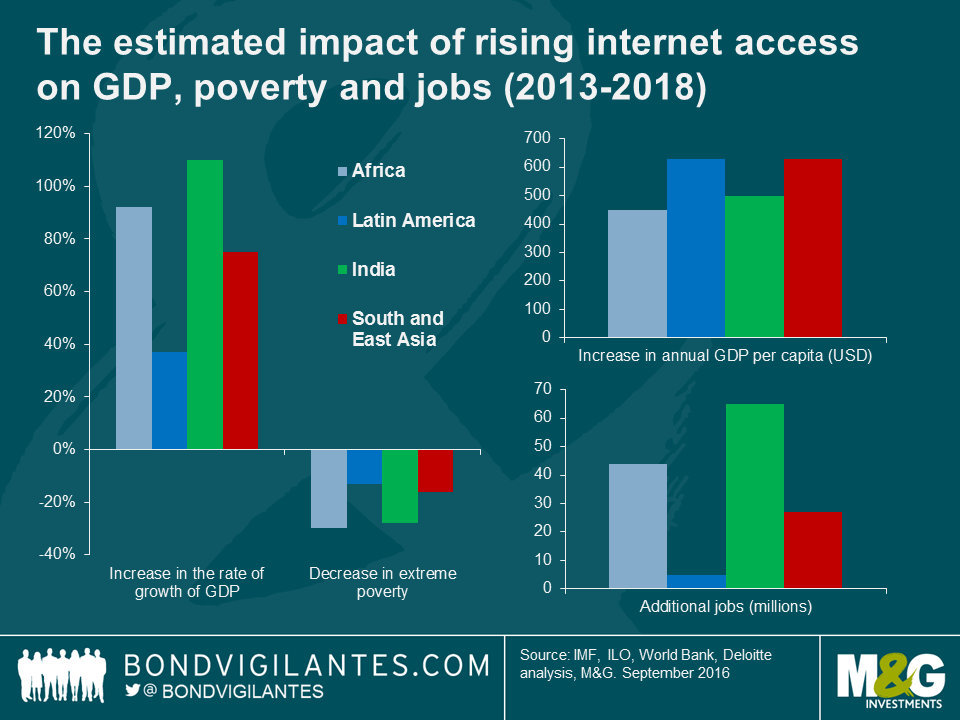Armageddon fatigue: reasons to be optimistic in the longer term
Watching the news flow on the global economy is dispiriting. Ask an economist what springs to mind when they hear the word “Europe”. They will probably reply with thoughts about negative interest rates, deflation and debt concerns. It isn’t much better when you bring up the economic outlook for the US (“the upcoming election is a concern”), Japan (“the BoJ is at the limits of monetary policy”), UK (“business and consumer confidence will be hit by Brexit”) or China (“the banking system could implode”). It seems that there is little reason to have a positive outlook at this point in the cycle.
Being bearish is hard wired into human psyche. It is the reason newspapers lead with alarmist headlines. Indeed, living memory is littered with apocalyptic predictions including nuclear war, airborne viruses and the millennium bug. The fact that these predictions did not materialise does not mean that current concerns are unfounded. However, there are reasons to be optimistic about the future for the global economy, despite the current doom and gloom.
The world is more connected than ever before. The internet is changing the ways that people work, create, and share ideas. Importantly, it is estimated that 46% of the world’s population now have access to the internet at home, which is up from only 6.8% in 2000. Around 3.4 billion people are expected to be online by 2017.
Rising internet access is important in that it enables economic growth in both developed and developing economies. The internet facilitates information flows, innovation, financial capital access, entrepreneurship and labour enhancement. The end result is greater productivity levels for labour and more efficient use of capital. In a report entitled the Value of Connectivity, Deloitte estimated that greater internet access in the developing world could result in an additional $2.2 trillion of additional GDP (the equivalent of Italy’s economy) and more than 140 million new jobs (which is almost the entire population of Russia).
The increase in internet access can also play an important role in reducing extreme poverty. The World Bank estimates that the number of people living in extreme poverty (under $1.90 a day) around the world fell under 10 percent of the global population in 2015. Poverty rates have reduced significantly over the past 35 years, coinciding with the benefits of greater internet access in the developing world. With a superior demographic profile and rising lower and middle class wealth, the developing nations have the ability to generate superior economic growth rates over the long term.
The internet has also led to the rise of the ultra-wealthy and with it, a number of ambitious philanthropic initiatives. Recently, the Chan Zuckerberg Initiative (of Facebook) announced the goal of “curing, preventing, and managing all diseases by the end of the century.” Whilst ambitious, the announcement has drawn attention to the way scientists are joining forces to try and solve huge challenges under the banner of “basic research” which focuses on discovering new scientific insights.
Some of the benefits of targeting basic science research have allowed the development of laser technology, GPS, multi-touch displays and search engines. It also led to the discovery of the first human cancer gene. There are substantial economic benefits too, with the US National Institute of Health estimating that every dollar spent on basic research yields returns ranging from $10 to more than $80. Wealthy philanthropists are increasingly looking at funding basic research alongside governments, and breakthroughs could benefit the standards of living for billions of people across the globe. New discoveries, new industries, new jobs.
Of course, it is difficult to measure in GDP terms the benefits that many technological breakthroughs have – and will – have. GDP is designed to measure things that have been exchanged at some market price and cannot capture the dispersion of ideas, or the increase in knowledge of someone accessing Wikipedia for the first time, or the time and cost savings made in not having to go to a travel agent to book a flight. As products become cheaper (or even free) due to technological innovation, GDP may increasingly mismeasure the progress of the global economy. The gap between what can be measured and our actual experience will widen further (for more on this topic, see our interview with Diane Coyle, author of GDP: A Brief but Affectionate History).
The benefits of the internet, improved global living standards, and potential breakthroughs in basic research should be enough to cure any market participants with Armageddon fatigue. Whilst these developments may not cure market concerns over the limits of monetary policy in the short term, they do suggest that many will continue to prosper long into the future.
The value of investments will fluctuate, which will cause prices to fall as well as rise and you may not get back the original amount you invested. Past performance is not a guide to future performance.


17 years of comment
Discover historical blogs from our extensive archive with our Blast from the past feature. View the most popular blogs posted this month - 5, 10 or 15 years ago!


Bond Vigilantes
Get Bond Vigilantes updates straight to your inbox






